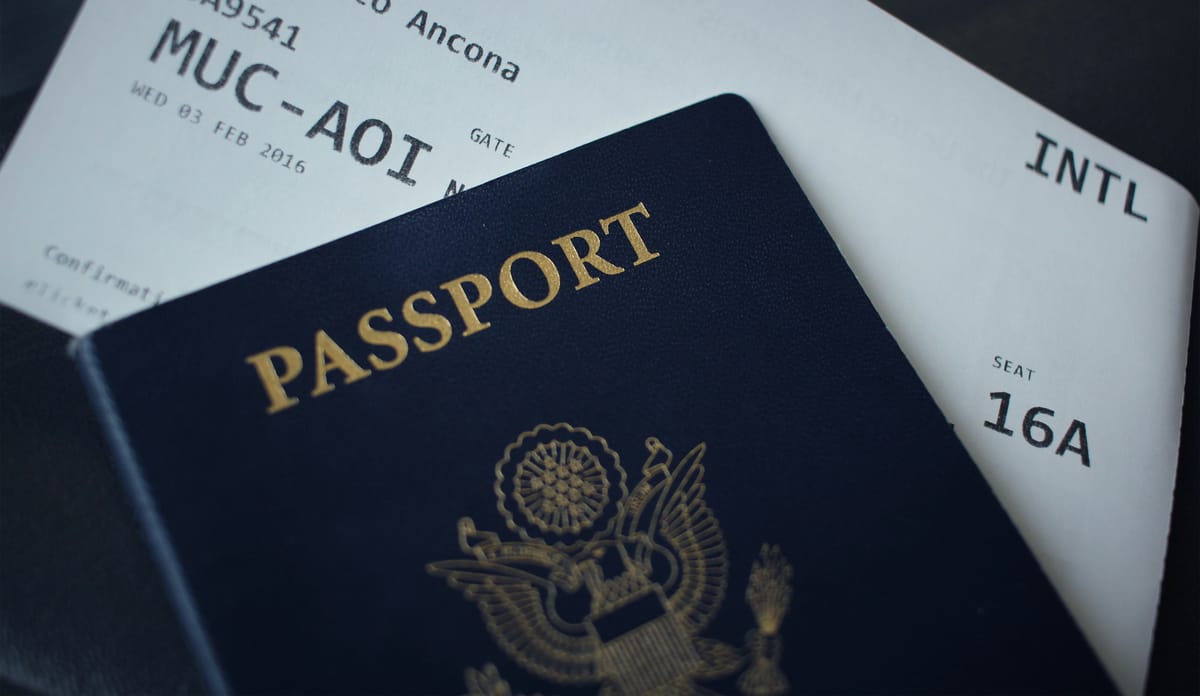Non-B ဗီဇာနဲ့ Work Permit အကြောင်း (Part 1)

If we are working professionally in Thailand, the company we will work for can apply for a Non-B visa. However, one thing that we often encounter is that the company does not apply for the visa, and we have to apply for it ourselves. So let's take a look at how to apply for a Non-B visa on our own.
Professional jobs that can be granted a Non-B visa are IT, Sales and Marketing, Doctor, Engineer, and Manager level jobs. So let's look at the Non-B visa process.
Normally, let's say you have a job. First, the company applies for a Pre-approval letter called WP3 to the relevant government office. The company issues an Employment Letter. Once you have the WP3, you can take the WP3 letter and the employment documents and apply for a Non-B visa at the Thai embassy. (The company cannot stay in Thailand while applying for WP3. If you are already in Thailand, you can wait to leave the country.) After entering Thailand with a Non-B visa, you can apply for a work permit. Since the Non-B visa is only valid for (90) days, you can extend the Non-B visa for one year after getting the work permit. This is the summary of the Non-B visa process.
So, why do some companies say that it is so easy to sponsor a Non-B visa and that you have to apply for it yourself?... In fact, there are certain criteria that a company must meet if it wants to hire foreign employees.
The criteria are:
- It must be a legally registered company.
- It must be tax-free every year.
- Tax documents and employee payroll documents must also be submitted.
- There must be at least (4) Thai employees (4:1 ratio). There must be (4) Thai employees before one (1) foreign employee can be hired. If you want to hire (2) foreigners, there must be (8) Thai employees.
- For a foreigner, the Registered Capital (financial capital) must be 2 million baht.
BOI-promoted companies do not have the 4:1 employee ratio, and they can have a financial capital of 1 million baht. (BOI-promoted companies can be considered as companies with large financial investments, and they also receive tax and other advantages.)
So, the question at the beginning, why do people ask you to apply for a Non-B visa yourself, is usually because the company does not meet the requirements mentioned above. If the company meets these requirements, there is no reason to refuse, and the company does not have to spend money.
In fact, there are also requirements that the employee must meet.
The requirements are -
- At least a Bachelor's degree.
- Must have (3) years of experience or more.
- If you do not have a bachelor's degree, you must have (5) years of experience or more.
So, you meet the requirements and the company asks you to apply for a Non-B visa on your own. I will write about how to do it later, as it is a long post...
Non-B ဗီဇာနဲ့ Work Permit အကြောင်း (Part 1)
ကျနော်တို့ ထိုင်းနိုင်ငံမှာ ပရော်ဖက်ရှင်နယ် အလုပ်လုပ်မယ်ဆိုရင် ကိုယ်လုပ်မည့် ကုမ္ပဏီဘက်က Non-B ဗီဇာ လျှောက်ပေးရပါတယ်။ ဒါပေမယ့် ခုနောက်ပိုင်း ခဏခဏ ကြုံရတတ်တာတစ်ခုကတော့ ဗီဇာကို ကုမ္ပဏီဘက်က မလျှောက်ပေးဘူး၊ ကိုယ့်ဘာသာ လျှောက်ရမယ် ဆိုတဲ့အကြောင်းပါ။ ဆိုတော့ Non-B ဗီဇာကို ကိုယ့်ဘာသာ လျှောက်မယ်ဆိုတာ ဘယ်လိုလဲဆိုတာ နည်းနည်းလေး လေ့လာကြည့်ရအောင်ပါ။
Non-B ဗီဇာပေးလို့ရတဲ့ ပရော်ဖက်ရှင်နယ်အလုပ်ဆိုတာကတော့ IT, Sale and Marketing, Doctor, Engineer နဲ့ Manager level အလုပ်မျိုးလို့ပြောလို့ရပါတယ်။ ဆိုတော့ Non-B ဗီဇာရဲ့ လုပ်ငန်းစဥ်တွေကို ကြည့်ရအောင်ပါ။
ပုံမှန်အားဖြင့် ကိုယ်က အလုပ်ရထားပြီ ဆိုကြပါစို့။ ပထမဆုံး ကုမ္ပဏီဘက်ကနေ WP3 လို့ခေါ်တဲ့ Pre-approval letter ကို သက်ဆိုင်ရာ အစိုးရရုံးကို လျှောက်ပေးရပါတယ်။ အလုပ်ခန့်ကြောင်း (Employment letter) ကုမ္ပဏီဘက်က စာရွက်ထုတ်ပေးပါတယ်။ WP3 ရသွားပြီဆိုရင် အဲ့ WP3 letter နဲ့ အလုပ်ခန့်ကြောင်းစာရွက်တွေကို ယူပြီးတော့ ထိုင်းနိုင်ငံသံရုံးမှာ Non-B ဗီဇာ လျှောက်ရပါတယ်။ (ကုမ္ပဏီဘက်က WP3 လျှောက်ပေးတဲ့အတောအတွင်း ထိုင်းနိုင်ငံအတွင်းမှာ နေလို့မရပါဘူး။ ထိုင်းနိုင်ငံမှာ ရောက်ပြီးနေတဲ့သူ ဆိုရင် နိုင်ငံအပြင်ထွက် စောင့်ရပါတယ်။) Non-B ဗီဇာနဲ့ ထိုင်းနိုင်ငံဝင်လာပြီးရင် work permit လျှောက်ရပါတယ်။ Non-B ဗီဇာက ရက် (၉၀) ပဲ ပေးတာဖြစ်တဲ့အတွက် work permit ရပြီးရင် Non-B ဗီဇာကို တစ်နှစ်စာ Extension တိုးရပါတယ်။ ဒါကတော့ Non-B ဗီဇာ လုပ်ငန်းစဥ် အကျဥ်းချုပ်ပါ။
ဆိုတော့ Non-B ဗီဇာစပွန်ဆာပေးတာ အဲ့လောက်လွယ်နေတာကို ဘာလို့ ကုမ္ပဏီတစ်ချို့က မလျှောက်ပေးဘဲနဲ့ ကိုယ့်ဘာသာ လျှောက်ရမယ်လို့ ပြောသလဲ?... တကယ်တော့ ကုမ္ပဏီတစ်ခုက နိုင်ငံခြားသား ဝန်ထမ်းခန့်မယ်ဆိုရင် ပြည့်မှီရမည့် စံသတ်မှတ်ချက်တွေ ရှိပါတယ်။
သတ်မှတ်ချက်တွေကတော့
- တရားဝင် register လုပ်ထားတဲ့ ကုမ္ပဏီဖြစ်ရပါမယ်။
- နှစ်စဥ်မပျက်မကွက် အခွန်ဆောင်ထားရပါမယ်။
- အခွန်စာရွက်စာတမ်းတွေနဲ့ ဝန်ထမ်း Payroll စာရွက်စာတမ်းတွေကိုလည်း တင်သွင်းရပါတယ်။
- ထိုင်းနိုင်ငံသား ဝန်ထမ်းအနည်းဆုံး (၄) ယောက်ရှိရပါမယ် (4:1 ratio)။ ထိုင်းနိုင်ငံသားဝန်ထမ်း (၄)ယောက်ရှိမှ နိုင်ငံခြားသား (၁)ယောက် ခန့်လို့ရပါတယ်။ နိုင်ငံခြားသား (၂) ယောက်ခန့်ချင်ရင် ထိုင်းနိုင်ငံသားဝန်ထမ်း (၈)ယောက် ရှိရပါမယ်။
- နိုင်ငံခြားသားတစ်ယောက်အတွက် Registered Capital (ငွေကြေးအရင်းအနှီး) ဘတ် ၂ သန်းရှိရပါမယ်။
BOI-promoted ကုမ္ပဏီတွေကတော့ ဝန်ထမ်း 4:1 ဆိုတဲ့ သတ်မှတ်ချက် မရှိပါဘူး၊ ငွေကြေးအရင်းအနှီးကိုလည်း ဘတ် (၁) သန်းရှိရင် ရပါတယ်။ (BOI-promoted ဆိုတာကတော့ ငွေကြေးရင်းနှီးမှု များများလုပ်ထားတဲ့ ကုမ္ပဏီလို့ပဲ မှတ်ထားလို့ရပါတယ် ၊ အခွန်နဲ့ တစ်ခြား အားသာချက်တွေလည်း ရရှိထားပါတယ်)
ဆိုတော့ ခုန အစက မေးခွန်းဖြစ်တဲ့ ဘာလို့ Non-B ဗီဇာကိုယ့်ဘာသာ လျှောက်ဖို့ ပြောတာလဲဆိုရင် များသောအားဖြင့် ကုမ္ပဏီဘက်က ခုန ပြောတဲ့ သတ်မှတ်ချက်တွေ မပြည့်မီလို့ ဖြစ်တာ များပါတယ်။ ကုမ္ပဏီဘက်ကသာ ဒီသက်မှတ်ချက်တွေ ပြည့်မီရင် မလုပ်ပေးချင်စရာ မရှိပါဘူး၊ ကုမ္ပဏီဘက်က ပိုက်ဆံကုန်တာ မရှိပါဘူး။
တကယ်တော့ ဝန်ထမ်းဘက်က ပြည့်မီရမည့် သတ်မှတ်ချက်တွေလည်း ရှိပါတယ်။
သတ်မှတ်ချက်တွေကတော့ -
- အနည်းဆုံး Bachelor ဘွဲ့ ရထားရပါတယ်။
- အတွေ့အကြုံ (၃) နှစ်နဲ့အထက် ဖြစ်ရပါမယ်။
- ဘွဲ့လက်မှတ်မရှိရင် အတွေ့အကြုံ (၅) နှစ်နဲ့အထက် ဖြစ်ရပါမယ်။
ဆိုတော့ ကိုယ့်ဘက်က သတ်မှတ်ချက်တွေပြည့်မီတယ် ကုမ္ပဏီဘက်က ကိုယ့်ဘာသာ Non-B ဗီဇာ လျှောက်ဖို့ လာပြောတဲ့အခြေအနေမျိုးမှာ ဘယ်လိုလုပ်လို့ရလဲ ဆိုတာကိုတော့ စာရှည်နေလို့ နောက်မှပဲ ရေးပါတော့မယ်...




